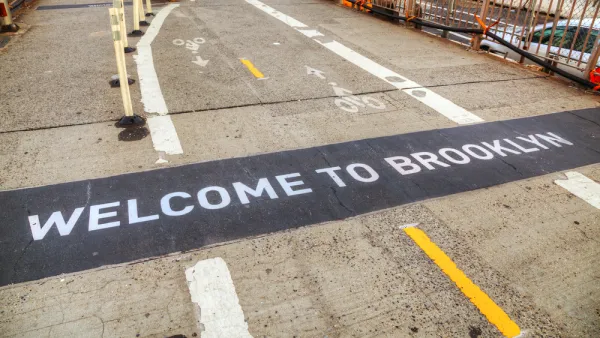Irvin Dawid discovered Planetizen when a classmate in an urban planning lab at San Jose State University shared it with him in 2003. When he left San Jose State that year, he took with him an interest in Planetizen, if not the master's degree in urban & regional planning.
As a long-time environmental activist, he formed the Sustainable Land Use committee for his local Sierra Club chapter and served six years on the Bay Area Air Quality Management District’s Advisory Council from 2002-2008. He maintains his interest in air quality by representing Sierra Club California on the Clean Air Dialogue, a working group of the Calif. Environmental Dialog representing business, regulatory and public health/environmental interests.
Major interests include transportation funding, e.g., gas taxes, vehicle miles traveled (VMT) fees, road tolls and energy subsidies that lead to unlevel playing fields for more sustainable choices.
He hails from Queens (Bayside) and Long Island (Great Neck); received an AAS in Fisheries & Wildlife Technology from SUNY Cobleskill and a B.S. from what is now Excelsior College.
After residing for three years on California’s North Coast, he’s lived on the San Francisco Peninsula since 1983, including 24 years in Palo Alto. Home is now near downtown Burlingame, a short bike-ride to the Caltrain station.
He’s been car-free since driving his 1972 Dodge Tradesman maxi-van, his means to exit Long Island in 1979, to the junkyard in 1988.
Major forms of transportation: A 1991 'citybike' and monthly Caltrain pass, zone 2-2. "It's no LIRR, but it may be the most bike friendly train in America."
Irvin can be reached at [email protected]
The Historical Foundation of America's Transit Disinvestment
The other day, a new Shinkansen bullet line was added in Japan, the first to operate high-speed rail in 1964. The U.S. has yet to build is first line. More troubling is the decay we've seen in the relatively new metro lines, like D.C. Metro and BART.

Urban Demographics: The New Elite
Economist Jed Kolko's recent study on how the lack in affordability of cities determines who's moving there, whose moving out, and how these changes are shaping cities and suburbs. His paper is the basis for several articles by leading urban writers.
A Reversal of Direction for TransCanada
TransCanada, the company that hoped to build a Canada-to-Gulf Coast pipeline, now wants to build one to carry Bakken oil from North Dakota to Canada, transporting oil now hauled only by trains that have caused recent deadly explosions.
The Golden State of Disabled Drivers
"Something is wrong," proclaimed Los Angeles Assemblyman Mike Gatto (D), "when one in eight California drivers claims a disability." Gatto has introduced two bills: one to address disabled parking, the other could promote variable pricing of parking.
How High is Too High for Transportation Sales Taxes?
Sales taxes are regressive, but unlike the gas tax, they bear no relationship to transportation. Should a November transportation ballot measure pass, sales taxes in three cities in the county of Los Angeles would exceed 10 percent.

























